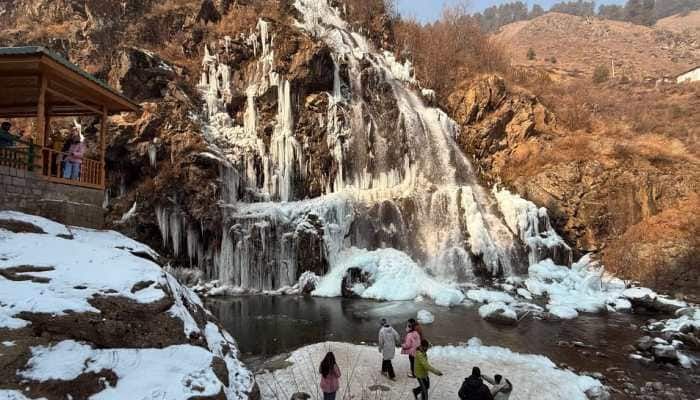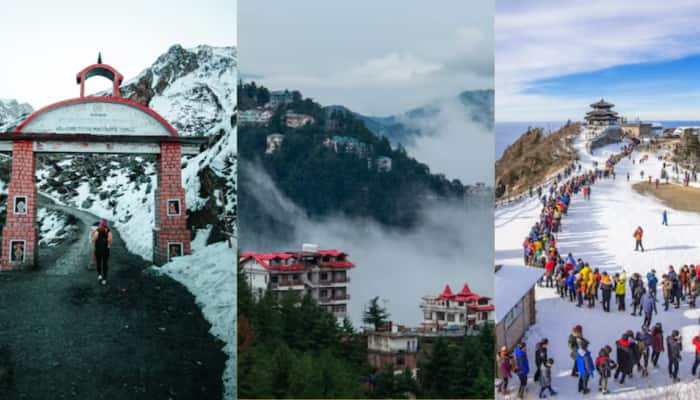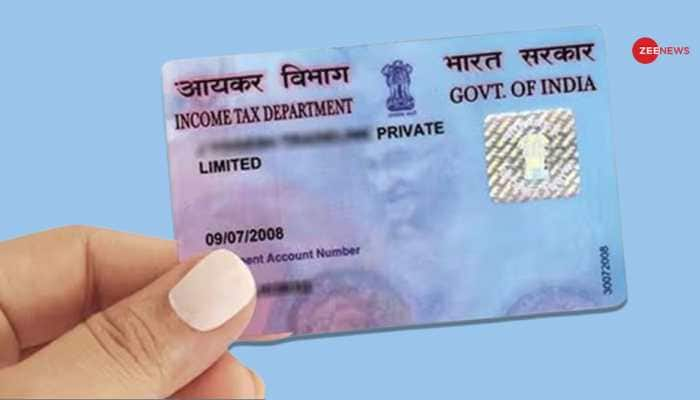Delhi's Air Quality Remains In 'Severe' Category; Primary Schools Closed Till November 10; GRAP Stage 4 Implemented
As the pollution levels continue to soar, Delhi Education Minister Atishi has announced the closure of primary schools in the city until November 10. For students in grades 6-12, the option of shifting to online classes is being offered.
Trending Photos
)
NEW DELHI: Despite the implementation of stringent measures, including a ban on polluting trucks and declaring a holiday in primary schools, the air quality in Delhi has plunged into the 'Severe' category, according to reports on Monday. Unfavorable wind conditions and a sharp increase in farm fires across North India have exacerbated the air quality crisis. As per the System of Air Quality Forecasting and Research (SAFAR-India), the air quality in the National Capital was recorded at 488 in the morning, up from 410 a day ago.
According to the Central Pollution Control Board (CPCB), Delhi's air quality remains a matter of grave concern. In view of the increasing pollution and to strictly implement GRAP-4, Delhi Environment Minister Gopal Rai has called a meeting of all concerned departments today.
#WATCH | Air quality across Delhi continues to be in the 'Severe' category as per the Central Pollution Control Board (CPCB).
(Visuals from Kartavya Path, shot at 6:52 am today) pic.twitter.com/7ZKlaQa7UM — ANI (@ANI) November 6, 2023
The Air Quality Index (AQI) readings paint a grim picture, with RK Puram at 466, ITO at 402, Patparganj at 471, and New Moti Bagh at 488 on Monday morning.
Air quality across Delhi continues to be in the 'Severe' category as per the Central Pollution Control Board (CPCB).
AQI in RK Puram at 466, in ITO at 402, in Patparganj at 471 and in New Moti Bagh at 488 pic.twitter.com/oBrbdeLqdp — ANI (@ANI) November 6, 2023
Primary Schools Closed; Online Classes For Grades 6-12
As the pollution levels continue to soar, Delhi Education Minister Atishi has announced the closure of primary schools in the city until November 10. For students in grades 6-12, the option of shifting to online classes is being offered. “As pollution levels continue to remain high, primary schools in Delhi will stay closed till 10th November. For Grade 6-12, schools are being given the option of shifting to online classes,” she announced on social media X.
As pollution levels continue to remain high, primary schools in Delhi will stay closed till 10th November.
For Grade 6-12, schools are being given the option of shifting to online classes. — Atishi (@AtishiAAP) November 5, 2023
The announcement was made as pollution levels once again reached the “severe plus” category in the capital due to unfavourable wind conditions, particularly calm winds during the night. A toxic haze lingered over Delhi for the sixth consecutive day on Sunday.
Though the air pollution woes are similar in Gurugram, Faridabad, Noida and Ghaziabad, the respective state governments have not yet declared any holiday in schools here. However, the administration is keen on allowing online classes for students.
GRAP Stage 4 implemented to tackle air pollution woes
To combat the worsening air quality, the Commission for Air Quality Management (CAQM) has invoked Stage IV of the Graded Response Action Plan (GRAP) in the entire National Capital Region (NCR). This stage intensifies the restrictions and measures already in place to address the severe air quality situation. Delhi Fire Services continue to sprinkle water in the Hotspot areas of the national capital to curb pollution.
#WATCH | Delhi Fire Services sprinkle water in the Hotspot areas of the national capital to curb pollution. (05.11)
(Earlier Visuals from Bhikaji Cama Place) pic.twitter.com/IUUWaNQ8LV — ANI (@ANI) November 5, 2023
Key measures under GRAP Stage 4
Under Stage IV of GRAP, several crucial actions have been put into effect, including:
-A ban on the entry of most truck traffic into Delhi.
-A prohibition on the operation of Delhi-registered diesel-operated Medium Goods Vehicles (MGVs) and Heavy Goods Vehicles (HGVs) in Delhi, with exceptions for essential services.
-Consideration for discontinuing physical classes for students in classes VI-IX and class XI, shifting to online lessons.
-Consideration for allowing offices to operate at 50% strength and enabling remote work options.
-Potential additional measures like the closure of educational institutions and restrictions on vehicle usage based on an odd-even registration system.
Delhi's Air Quality Remains A Prime Concern
Delhi's air quality remains a major concern as it lingers in the 'Severe' category for the fourth consecutive day. While there has been a marginal improvement in the Air Quality Index (AQI), the overall situation remains critical.
NGT Calls for immediate action
The National Green Tribunal (NGT) has urged the Chief Secretaries of affected states to take immediate remedial action and submit reports on measures taken to improve air quality. The NGT emphasizes the importance of safeguarding residents' health and ensuring better air quality in these cities.
Serious health implications
Delhi's air quality continues to rank among the worst in the world's capital cities, with significant health implications. Air pollution, as reported by the Energy Policy Institute at the University of Chicago, is shortening lives in Delhi by nearly 12 years. This crisis has forced many to forgo outdoor activities, and it poses particular risks to children, who breathe in higher concentrations of pollutants.
The severity of the situation underscores the urgent need for comprehensive measures to address air quality concerns in the national capital.
Stay informed on all the latest news, real-time breaking news updates, and follow all the important headlines in india news and world News on Zee News.
Live Tv







)
)
)
)
)
)
)
)
)
)
